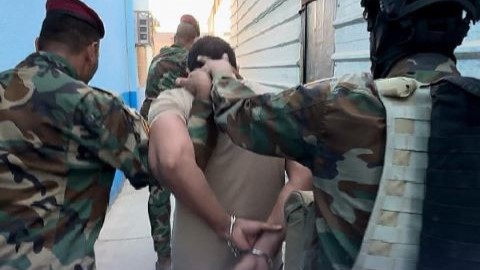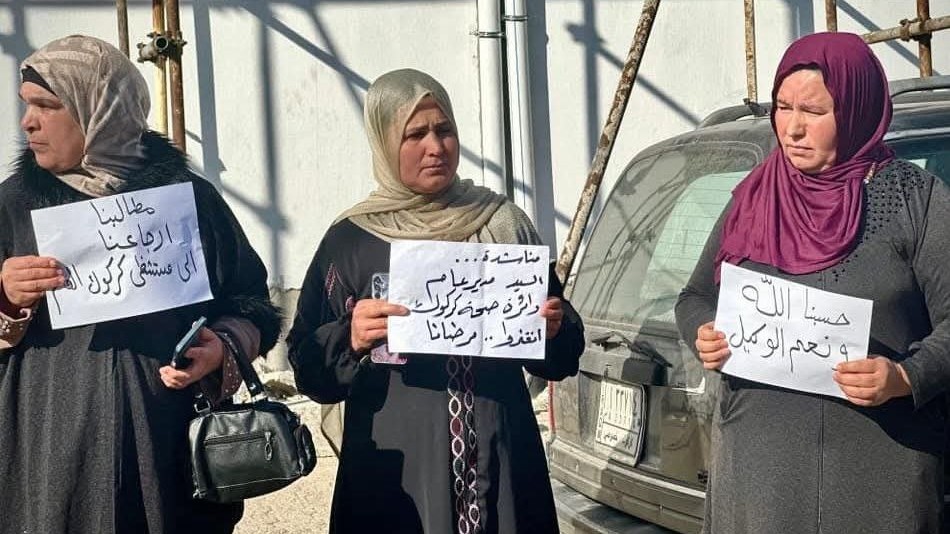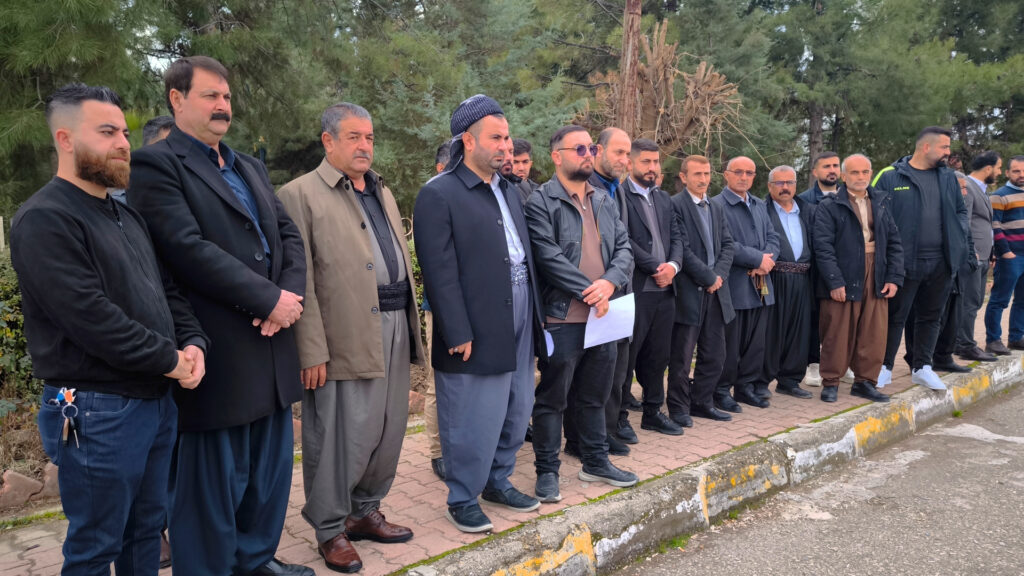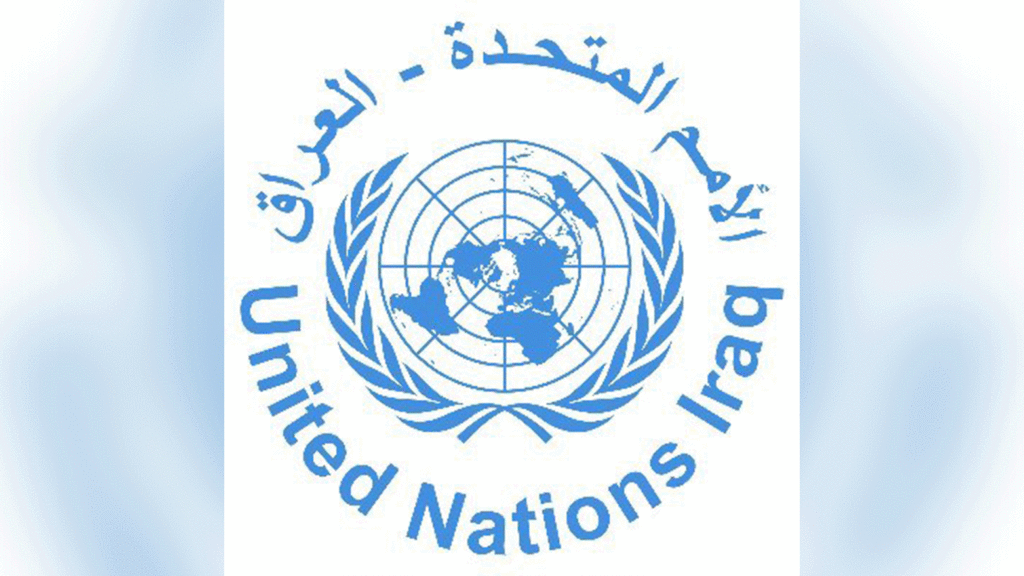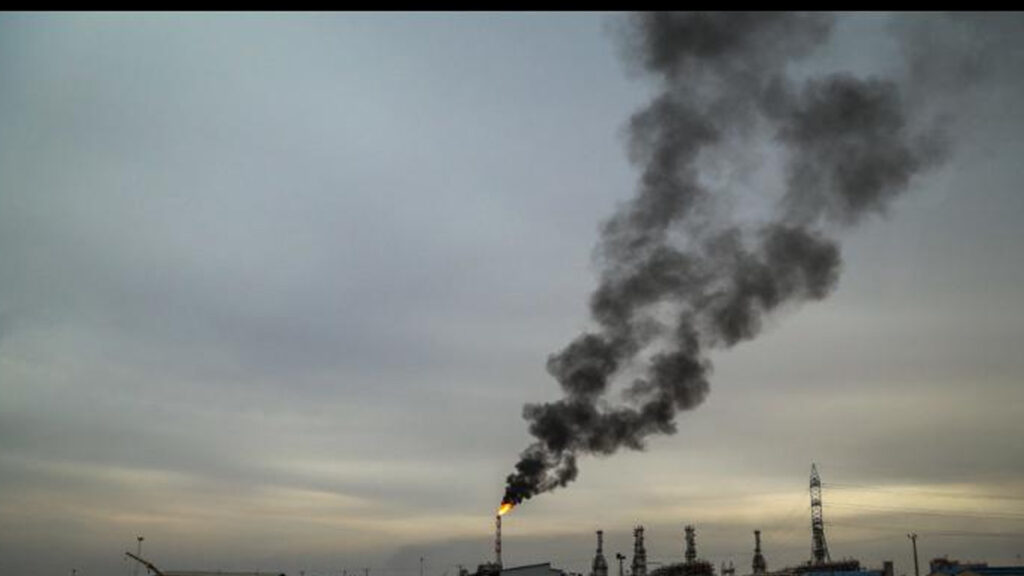Iraq and Syria Attacks Blamed on Turkey Rattle Region, Raise U.S. Concerns

Recent attacks in northern Iraq and Syria have sparked outrage in both countries as well as neighboring nations and have raised concerns for the United States, whose NATO ally, Turkey, has been named as a culprit by the targeted states.
Funerals were held across Iraq on Thursday after nine tourists were killed a day earlier in what Iraqi officials have described as a Turkish artillery attack on a resort in the northern village of Zakho, located in Iraq's semi-autonomous Kurdistan region. Iraqi Prime Minister Mustafa al-Kadhimi, who received the bodies of the dead in a ceremony, announced a national day of mourning as hundreds took to the street in protest.
In a statement released shortly after the attack, Kadhimi condemned the "brutal attack," which he said "underscores the fact that Turkey ignored Iraq's continuous demands to refrain from military violations against Iraqi territory and the lives of its people."
The Iraqi premier also said that "Iraq reserves its full right to respond to these attacks and will take all necessary measures to protect its people and hold the aggressors accountable for the ongoing escalation."
But as Kadhimi chaired emergency meetings and prepared to submit an official complaint to the United Nations Security Council, the Turkish Foreign Ministry issued a statement formally denying any role in the strike and instead said the Kurdistan Workers' Party (PKK), an outlawed group with which Turkish capital Ankara has been at war for three decades, was responsible.
Reached for comment, Turkey's embassy in Washington referred Newsweek to the statement, which also said that "Türkiye is against all kinds of attacks targeting civilians" and "carries out its fight against terrorism in accordance with international law, with utmost sensitivity to the protection of civilians, civilian infrastructure, historical and cultural property and the environment."
"Türkiye is ready to take all steps to reveal the truth," the statement said. "We invite Iraqi government officials not to make statements under the influence of the rhetoric and propaganda of the treacherous terrorist organization and to cooperate in bringing the real perpetrators of this tragic incident into light."
The U.S., which is allied with Turkey and is a security partner of Iraq, did not identify a culprit but expressed support for Iraq's sovereignty as well as concern over the recent course of events.
Reached for comment, the State Department referred Newsweek to spokesperson Ned Price, who on Wednesday reaffirmed with reporters the U.S. position "that military action in Iraq should respect Iraqi sovereignty and territorial integrity, and we express our condolences to the families of the victims of today's actions."
"We emphasize the importance of ensuring civilians are protected," he added, "and we will continue to monitor the situation closely as additional information emerges."
Iran also issued a condemnation of the attack without identifying who was responsible in remarks conveyed to reporters by Foreign Ministry spokesperson Nasser Kanaani and directly to Iraqi Foreign Minister Fouad Hussein by his Iranian counterpart Hossein Amir-Abdollahian.
"In this telephone conversation, Dr. Amir Abdollahian, while expressing his sympathy with the families of the victims, the Iraqi government and nation, emphasized the Islamic Republic of Iran's firm support for the stability and security of Iraq," an Iranian Foreign Ministry readout published Thursday said.
The readout also cited Hussein as saying during their talks that "the claims of a terrorist group's presence in this region is untrue" in likely reference to Turkey's explanation of the attack.
Turkey's longstanding conflict with the PKK and other Kurdish groups Ankara has accused of having direct ties to the militant separatist organization has played out for years in Iraq. The Turkish Defense Ministry has regularly published updates of its campaign in northern Iraq, including a statement Thursday that reiterated that "the operations of the Turkish Armed Forces against the terrorist organization PKK continue without slowing down" after a PKK member was said to have surrendered at the Turkish border.
Such operations have been a source of heated tensions between Ankara and Baghdad. A far broader and deadlier campaign, however, has been carried out in neighboring Syria, where Kurdish forces have also established an autonomous administration, albeit outside the auspices of the central government in Damascus, which has also protested Turkish military incursions.
Since the beginning of Syria's civil war in 2011 and the U.S. decision to back the Kurdish-led Syrian Democratic Forces against the Islamic State militant group (ISIS, also called Daesh) five years later, Turkey has conducted three major military operations in northern Syria. These campaigns have been carried out in partnership with Syrian rebels opposed to both the Syrian government and the Kurdish administration in northern and eastern Syria.
While these operations have led to ceasefires granting Turkey and the insurgents it sponsors more territory, Turkish President Recep Tayyip Erdogan has repeatedly complained about ongoing security concerns posed by the Kurdish presence in the region. Since May, he has threatened a fourth intervention, garnering criticism from the U.S. as well as Russia and Iran, which back the Syrian government.
"It is important to us that existing ceasefire lines be preserved," Price said during Thursday's State Department press briefing. "Any new operation, any new Turkish offensive in the region would have the potential to set back some of the tremendous progress that the coalition has made and in the face of Daesh's so-called caliphate in recent years."
"It would have the potential to be detrimental in the context of the ongoing political process pursuant to U.N. Security Council Resolution 2254," he added. "We have expressed this concern publicly as we did again yesterday and today, we expressed it privately with our Turkish allies."
And while Price said U.S. officials have "consistently said that we recognize Turkey is legitimate security concerns," he argued that it was the position of President Joe Biden's administration "that Turkey needs to halt offensive operations in northern Syria."
A White House National Security Council spokesperson also told Newsweek that "we do not support a Turkish-led incursion and believe ceasefire lines should be respected by all parties."
But operations have continued as per the Turkish Defense Ministry's own reporting, which claimed 11 members of the PKK were "neutralized" after an operation Wednesday.
That same day, the Syrian Observatory for Human Rights, a U.K.-based monitor with ties to Syria's exiled opposition, reported that a Turkish drone had shelled positions of the Pentagon-backed Syrian Democratic Forces, killing two fighters near the city of Ain al-Arab, known to Kurds as Kobani. The Syrian Democratic Forces confirmed the account in their own statement, claiming the two slain "were on their way to visit one of [their] families."
The incident came just a day after U.S. Central Command chief Army General Michael Kurilla sat down with Syrian Democratic Forces commander Mazloum Abdi for talks in which the latter's press office said that "security fears of Turkish threats were discussed."
The Turkish embassy in Washington told Newsweek that the Syrian Democratic Forces is "a terror syndicate and Syria branch of PKK," pointing out that both the U.S. and European Union also regard the group as a terrorist organization, one whose "operating manual relies on terrorism on the ground and black propaganda in international press against us."
The embassy also pointed to Ankara's own efforts against ISIS, saying Turkey's operations have killed more than 4,500 of the jihadis. The embassy also alleged that the Syrian Democratic Forces collaborated with ISIS, an accusation that the Syrian Democratic Forces have also lodged against Turkey and its allied rebels, some of whom have ties to Islamist groups.
And just as the Syrian Democratic Forces have accused Turkey of targeting its positions with drones, the Turkish embassy argued that the PKK and its local affiliates have launched cross-border unmanned aerial system attacks against Turkish territory, and have launched up to 1,800 attacks over the past two years.
"We have been consistently underscoring persistent wrongdoings and ill-advised strategies since the beginning of this fight," the embassy said. "Continuous ignorance of our calls and ensuing appeasement of PKK/YPG terror elements in Syria have resulted in the resurgence of DAESH."
The embassy also said that Turkish officials have "communicated our concerns with the U.S." and, as Price said, "they acknowledged our security concerns."
"Yet no action has been taken," the embassy added. "We will act at a time and place of our choice to respond to the ongoing terrorist attacks, that inflict casualties and damage against civilians Syrians and Turks alike."
These developments also coincided with Erdogan's meeting with counterparts Vladimir Putin of Russia and Ebrahim Raisi of Iran in Tehran as part of the latest leaders-level session of the trilateral Astana peace process for Syria. Like Washington, Moscow and Tehran have called on Ankara not to conduct another major military operation in northern Syria.
Upon his return from Iran, however, Turkish and foreign media outlets reported Wednesday that Erdogan said such an offensive "will remain on the agenda until our national security concerns are alleviated."
This article has been updated to include comments from the Turkish embassy in Washington, D.C.

